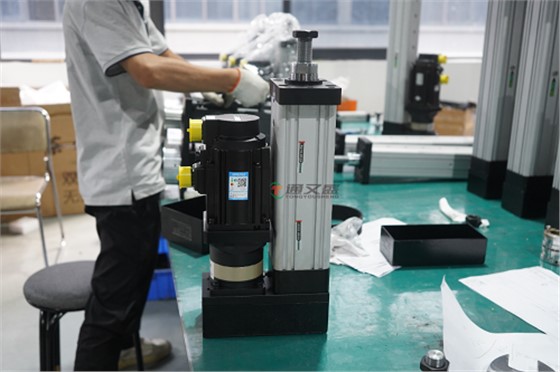When choosing between electric and hydraulic cylinders for an application, understanding their working principles, characteristics, performance, use, maintenance, and cost is essential. Both types of cylinders serve similar functions but differ significantly in how they operate and their suitability for various tasks.
Working Principle
Electric Cylinders: These devices convert electrical energy into linear motion using an electric motor connected to a lead screw or ball screw. The motor drives the screw, which moves a piston within the cylinder, producing precise, controlled movement.
Hydraulic Cylinders: These rely on pressurized fluid to create linear motion. Hydraulic fluid is pumped into the cylinder, forcing the piston to move. The amount of pressure determines the force output, making hydraulic systems capable of generating significant power.
Characteristics
Electric Cylinders:
- Precision: Offers high precision and control due to the electronic feedback and motor-driven mechanics.
- Efficiency: Generally more energy-efficient as they only consume power when in use.
- Maintenance: Requires less maintenance compared to hydraulic systems as there are fewer moving parts and no need for fluid changes.
Hydraulic Cylinders:
- Force: Capable of delivering higher force outputs suitable for heavy-duty applications.
- Flexibility: Can be more adaptable to varying loads and pressures.
- Maintenance: Requires regular maintenance, including fluid checks, leakage inspections, and filter replacements.

Performance
Electric Cylinders: Provide consistent performance with precise control over speed and position. They are ideal for applications needing accurate motion control and repeatability.
Hydraulic Cylinders: Offer superior power and force, making them ideal for heavy lifting and high-load applications. However, they may have less precise control compared to electric cylinders.
Use
Electric Cylinders: Commonly used in automation, robotics, and applications requiring precise control and minimal noise, such as in conveyor systems, medical equipment, and packaging machinery.
Hydraulic Cylinders: Used in industries requiring high force, such as construction, automotive, and manufacturing. Applications include lifting heavy loads, pressing, and earth-moving equipment.


